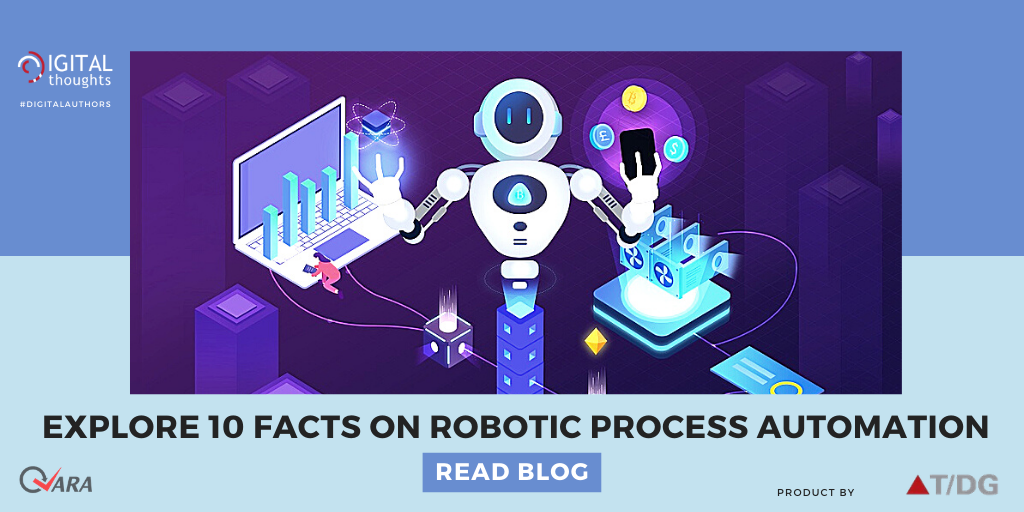10 Facts You Should Know about Robotic Process Automation

Robotic process automation (RPA) is a term used to denote an automation technology that focuses on robots and/or artificial intelligence (AI). RPA is deemed as the future of automation testing and has a significantly different approach and multiple benefits. It is different from the traditional automation process that is implemented using a test automation tool like QARA Enterprise, because it is powered by AI, which makes it capable of intelligently studying the actions performed by the user on the applications. RPA has wide applications and it is considered to be the future of automation. Given below are 10 facts that you should know about RPA.
- The most interesting thing about RPA is the fact that it requires little efforts from the QA team, as it is different from the traditional automation technology, which involves writing the test steps and automating them with the help of a scripting language or API. RPA is intelligent enough to automate test case execution just by observing QA professionals perform the test steps on a general user interface (GUI).
- RPA can be compared to the GUI testing that QA professionals use today, but it is definitely more complex as well as more advanced technology with significantly more capabilities.
- RPA technology is one of emerging technologies of 2020 and is very easy to implement. However, scalability is one aspect that it needs to be worked on when it comes to the implementation of RPA.
- It's a technology that is basically based on "modelling" robots to model or imitate test steps performed by the QA professional. It will be interesting to note the possibilities that the future has in store for RPA.
- It is all about training the system to be able to learn the flow of work and at the same time, making a system acquainted with the various rules that need to be applied for successful automation.
- RPA enables machines to login to websites and applications just like humans do, and even send and receive emails without human intervention of any kind.
- Within the next 2 years, a staggering 72% of organizations will be implementing RPA in one form or the other, according to Gartner.
- RPA was ranked as the fastest growing Enterprise software Technology in the market in 2018, and it still continues to grow to unprecedented heights.
- RPA is all set to rule the digital domain by the end of the year 2020, say experts.
- The fundamentals of RPA implementation would be migration to the Cloud, and at the same time, driven by cognitive computing.
So, that was about some key facts to know about robotic process automation (RPA). It's an intelligent technology that has a lot of scope and we are sure that the future will witness many more possibilities with RPA that we can probably not even imagine right now.
